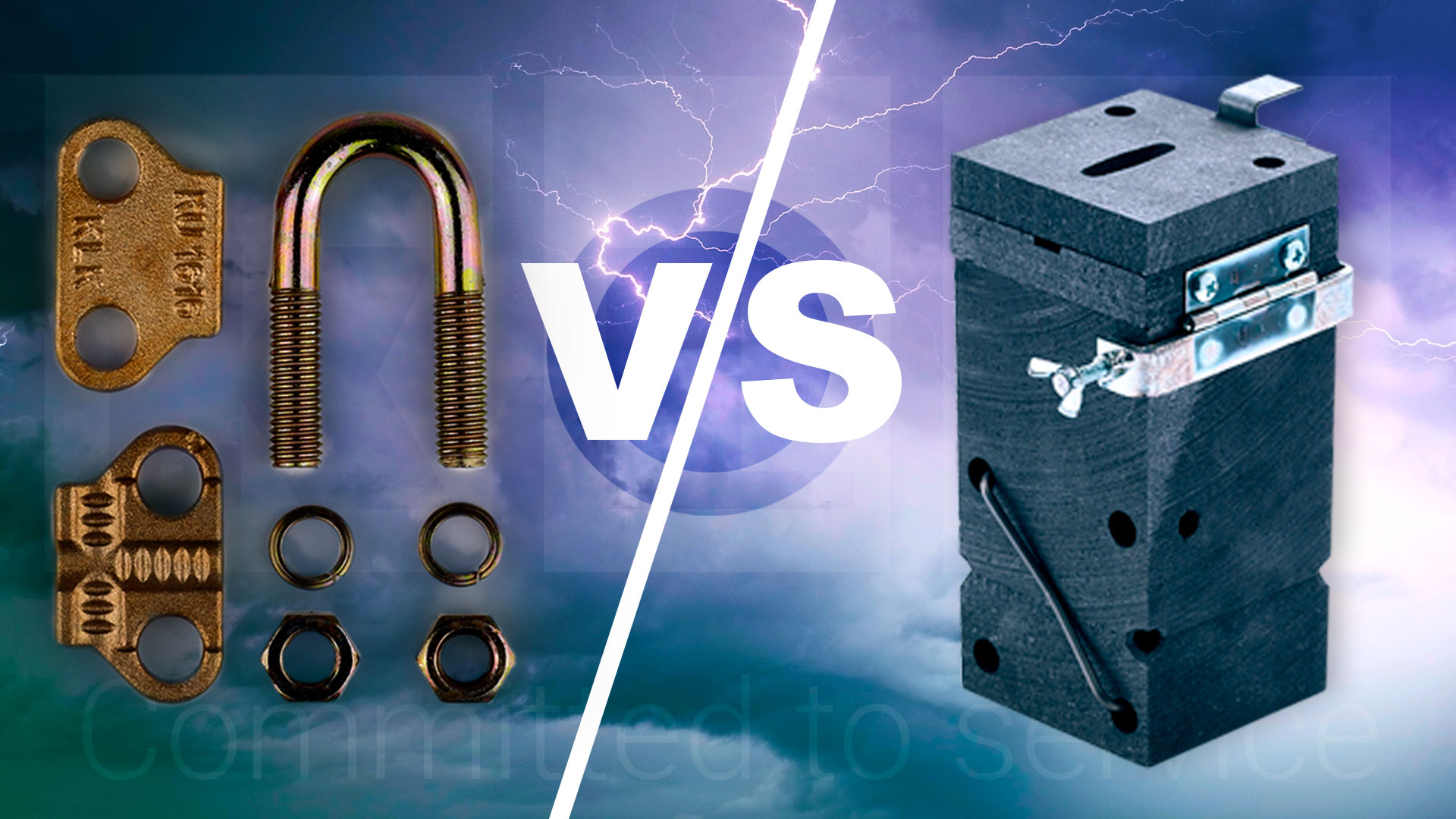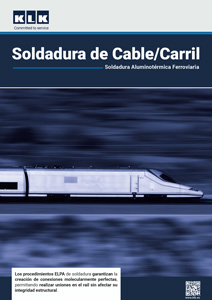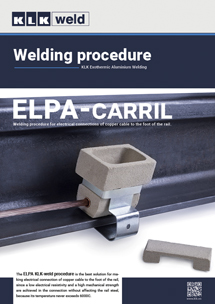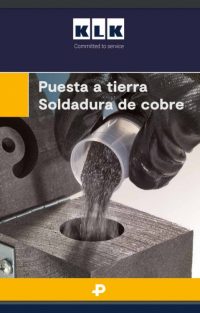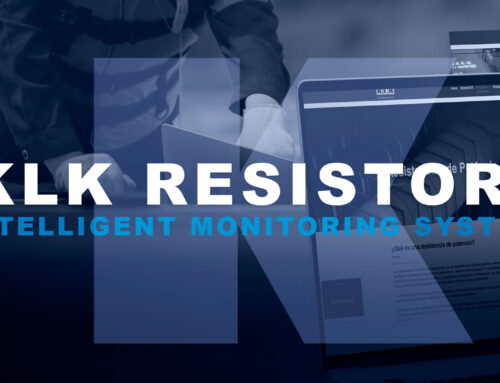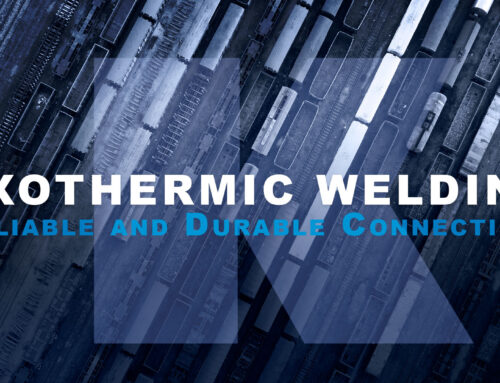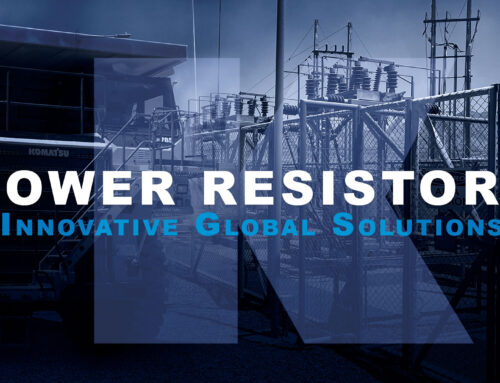Ground Connections: Mechanical vs. Welded
Grounding Connections: Mechanical vs. Welding
In electrical installations, Ground Connections: Mechanical vs. Welded Comparison, and the choice between different options is crucial for safety and performance. Discover the advantages and key considerations to make informed decisions in your projects.

Our cities are an example of thousands of grounding connections. | Photo: KLK corporate video
From Europe, the Middle East, to Central and South America, where conditions vary from scorching deserts to torrential rains, corrosion resistance is essential. KLK Electro Materiales’ underground Ground Connections are designed to withstand extreme conditions, ensuring durability and reliability.
Do you want to explore a comparison of which is the best type of connections? Mechanical (e.g., KU1616 Clamp and Electrode 15 UNE202006) versus a connection through exothermic welding (e.g., CP-TS KLKweld connection).
Keep reading, and we will explain it to you step by step…
Grounding… What is it for?
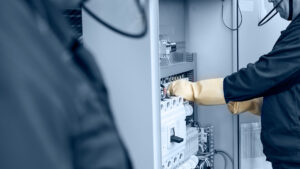
Grounding Safety Measurements | Photo: Image Bank
Prevention of Undesired Currents:
In a context where the integrity of grounding is vital, the grounding conductor must ensure continuity and very low resistance, facilitating the flow of leakage currents to the ground in fault situations. Both mechanical and molecular connections play a crucial role. How does this impact the safety and stability of the installation?
Preventive Measurements:
Before burying the connections, precise measurements are essential. Specialized equipment measures in the order of micro ohms, providing crucial data. This step, supported by the experience of KLK Electro Materiales, ensures that both mechanical and molecular connections are within safe values and comply with local regulations.
Regulations and Standards:
With reference to the RBT and other local regulations, KLK Electro Materiales ensures strict compliance with low-voltage regulations. The provided connections meet specifications in coating (microns), grounding lengths, and recommended cable sections, ensuring a safe and compliant installation.
Mechanical Connections vs. Molecular Connections:
Grounding Connections: Mechanical vs. Welding
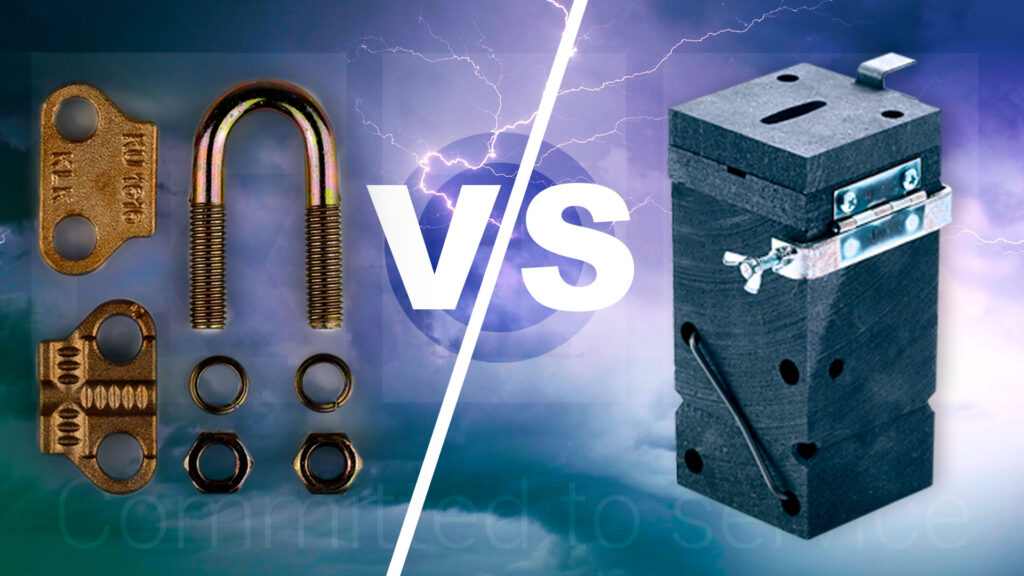
Description: What would be the best type of connection and why? | Photo: Dani Rendueles
Mechanical Connections (Clamp + Electrode): Advantages and Challenges
Advantages:
- Ease of Installation: Mechanical connections, such as clamps and electrodes, stand out for their straightforward installation, reducing time and process complexity.
- Resistance to Mechanical Stress: These connections exhibit robust resistance to physical tensions, making them ideal for environments prone to movement or vibrations.
- Adaptability to Different Terrains: The versatility of mechanical connections allows them to adapt to a variety of terrain conditions, providing reliable solutions in various geographic environments.
Challenges:
- Susceptibility to Corrosion in Harsh Environments: In areas with hostile environmental conditions, mechanical connections may be more prone to corrosion, affecting their long-term durability and performance.
- Higher Electrical Resistance Compared to Exothermic Welding: In terms of electrical resistance, mechanical connections may have slightly higher values compared to molecular connections through exothermic welding. This factor should be considered in applications where low resistance is critical.
- Difficulty in Inaccessible Environments: In some geographic locations with diverse terrains or urban areas where it is challenging to drive an electrode, several operators may be required to make the connection. Meanwhile, there are many more connection options using graphite mold.
Recommended Applications: Mechanical connections are particularly effective in electrical installations where adaptability and ease of installation take precedence, and where environmental conditions are not extremely corrosive.

Description: Image highlighting the long-term durability of molecular connections through exothermic welding.
Conexiones Moleculares (Soldadura Exotérmica): Ventajas y Desafíos
-
Ventajas:
- Conexiones Moleculares sin Resistencia Eléctrica Apreciable: La soldadura exotérmica ofrece conexiones prácticamente libres de resistencia eléctrica, proporcionando una vía eficiente para la corriente eléctrica sin pérdidas significativas.
- Resistencia Excepcional a la Corrosión: La soldadura exotérmica crea uniones robustas que resisten eficazmente la corrosión, incluso en entornos agresivos. Esta resistencia contribuye a la durabilidad a largo plazo de las conexiones.
- Durabilidad a Largo Plazo sin Degradación: Las conexiones moleculares mediante soldadura exotérmica no experimentan degradación con el tiempo, asegurando una durabilidad sostenida y una menor necesidad de mantenimiento
-
Desafíos:
- Requiere Habilidades y Equipo Especializados para la Instalación: La soldadura exotérmica implica un proceso especializado que requiere habilidades específicas y equipo dedicado. Esto puede aumentar los costos iniciales y la dependencia de personal capacitado.
- Mayor Costo Inicial: La implementación de conexiones mediante soldadura exotérmica puede tener un costo inicial más elevado en comparación con las conexiones mecánicas. Sin embargo, este costo puede compensarse con la durabilidad y el rendimiento a largo plazo.
- Aplicaciones Recomendadas:
- Las conexiones mediante soldadura exotérmica son especialmente adecuadas para aplicaciones críticas donde la baja resistencia eléctrica y la resistencia a la corrosión son fundamentales, como en instalaciones industriales y proyectos de infraestructura ademas de la mejor solución para efectuar conexiones en Construcción y Renovables.
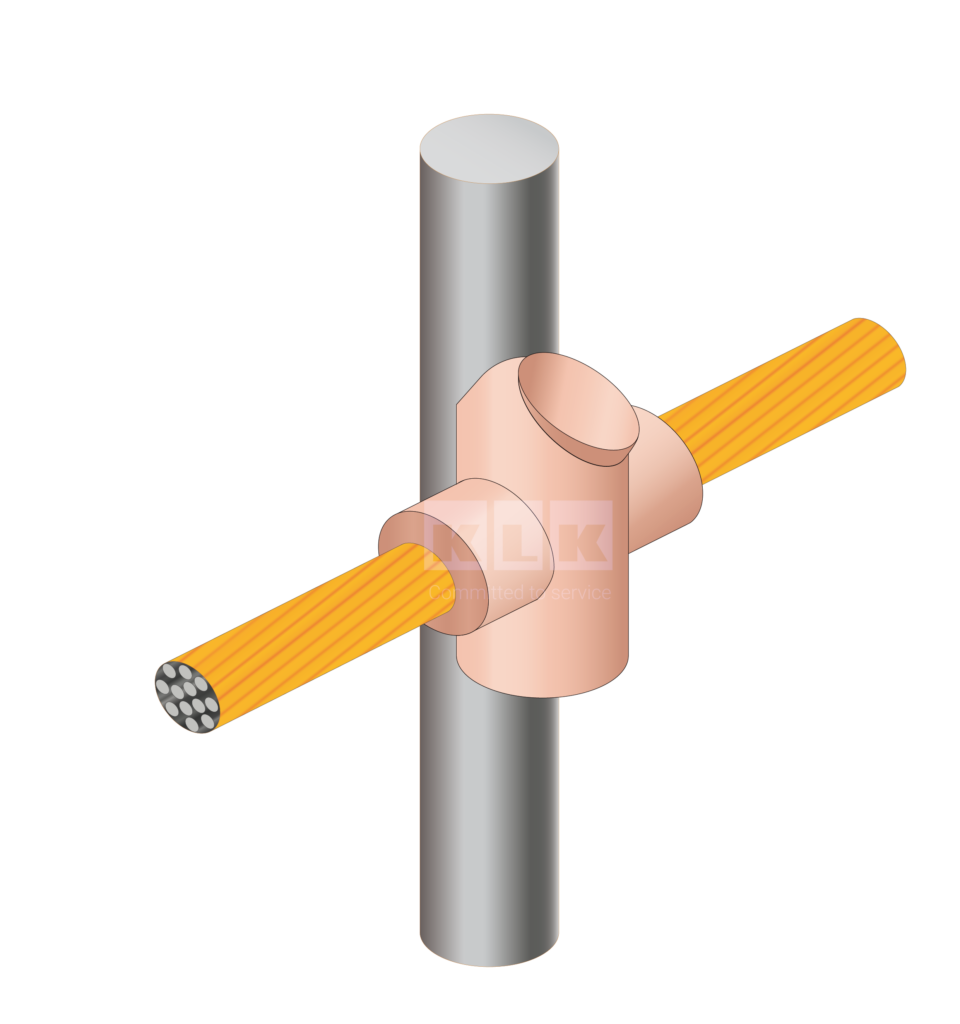
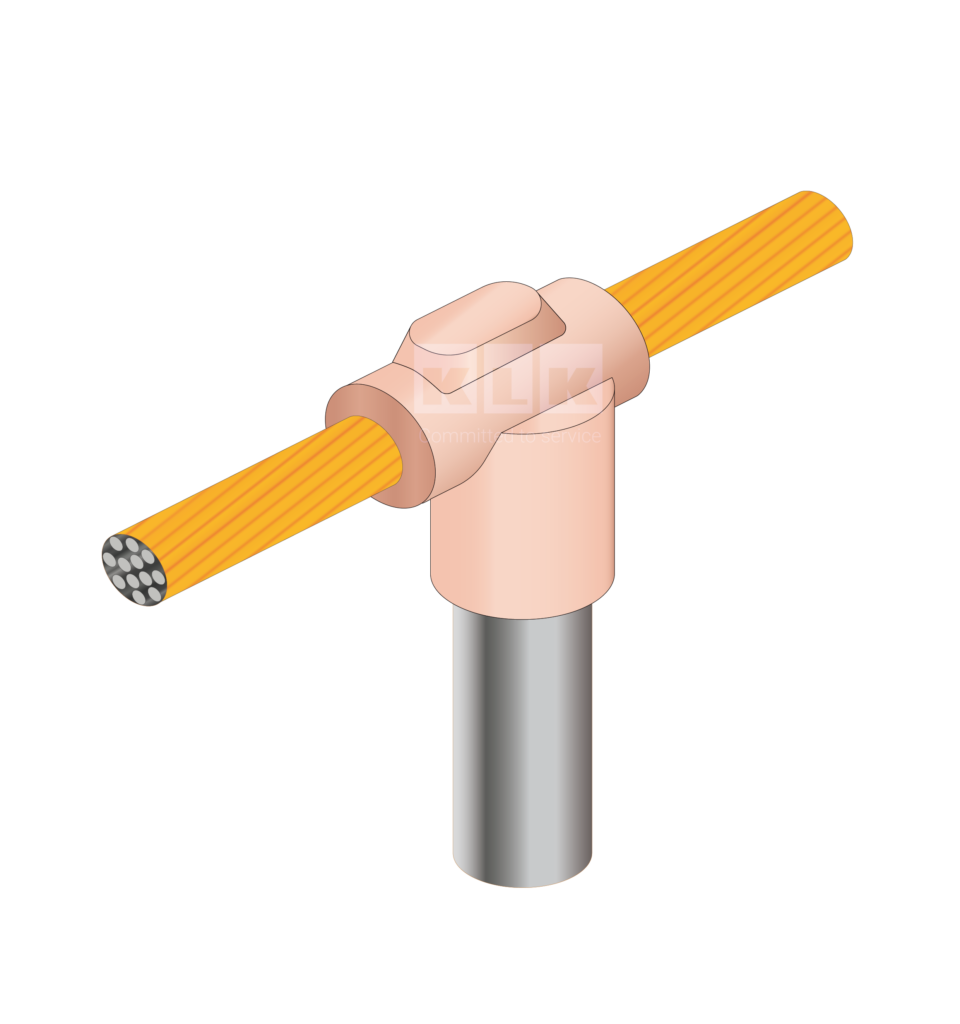
Description: Two types of connections, an example of bare cable connection to copper electrode KLK 15UNE 202006
Conclusion:
When choosing between mechanical and molecular connections, consider the specific application, environmental conditions, and the quantity of connections required for the project. The need for a connection to provide grounding in a single-family home is not the same as the connections required for an entire solar generation plant, for example.
At KLK Electro Materiales, we offer tailored solutions to ensure safety and performance. By investing in connections that withstand environmental adversities, you ensure electrical installations that comply with regulations and establish a standard of excellence.
KLK Electro materiales slu
Mail | Web | Teléfono | Chatbot | Social Media
Need help?

